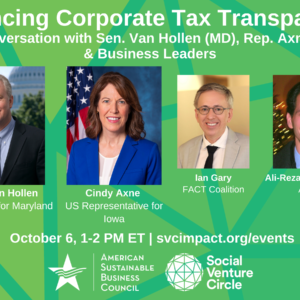
To Fund Climate Investments and Enforce Environmental Protections, the Era of Tax Secrecy Must End
Tax and climate activists have a rare opportunity to join forces on public country-by-country reporting, a key tool to ending the global race to the bottom and unveiling unsustainable business practices.





